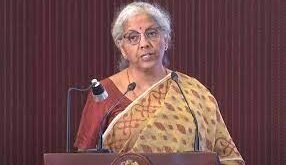
In a significant development, the Law Commission of India has called for new suggestions from the public and religious organizations regarding the implementation of a Uniform Civil Code (UCC) in the country. The move comes after the 21st Law Commission extensively reviewed the subject and sought the views of various stakeholders.
According to a statement released on the Press Information Bureau (PIB) website, the 21st Law Commission had previously solicited opinions on the UCC through an appeal and a questionnaire on July 10, 2016. Additional public notices were issued on March 19, March 27, and April 10 in 2018. Encouraged by the overwhelming response received during that time, the 22nd Law Commission has now decided to seek fresh views and ideas from the public and recognized religious organizations on the matter.
The statement further elaborated that interested individuals and organizations could submit their perspectives within a 30-day period from the date of the notice. The Law Commission of India provided two options for submission – either through the “click here” button on their website or via email at membersecretary-lci[at]gov[dot]in.
It is worth noting that the government has not made a decision yet on the implementation of the Uniform Civil Code. In February of this year, the former Law Minister, Kiren Rijiju, informed the Rajya Sabha (the upper house of the Indian Parliament) that the government had not reached a conclusion regarding the UCC bill. Rijiju clarified that the matter could be taken up by the 22nd Law Commission for consideration. The government had previously requested the 21st Law Commission to examine various issues related to the Uniform Civil Code and provide recommendations.
The Uniform Civil Code aims to replace the personal laws of different religious communities in India with a common set of laws governing matters such as marriage, divorce, inheritance, and adoption. The concept has been a subject of intense debate and discussion in the country, with proponents advocating for gender equality and the promotion of a uniform legal system, while opponents argue for the preservation of religious and cultural diversity.
The Law Commission’s decision to seek fresh input from the public and religious organizations reflects the government’s commitment to a comprehensive and inclusive approach. By actively engaging with various stakeholders, the commission aims to gather diverse perspectives on the matter before formulating any recommendations.
As the 22nd Law Commission invites new ideas and viewpoints, it remains to be seen how the public and religious bodies respond to this call for suggestions. The eventual outcome of this process will undoubtedly have far-reaching implications for the country’s legal framework and the lives of its citizens.
Sources By Agencies
 Digital Scoop India Official Platform of Digital Scoop India Featuring Latest & Best News #Articles #Bytes #Entertainment #DigitalScoopMagazine
Digital Scoop India Official Platform of Digital Scoop India Featuring Latest & Best News #Articles #Bytes #Entertainment #DigitalScoopMagazine



